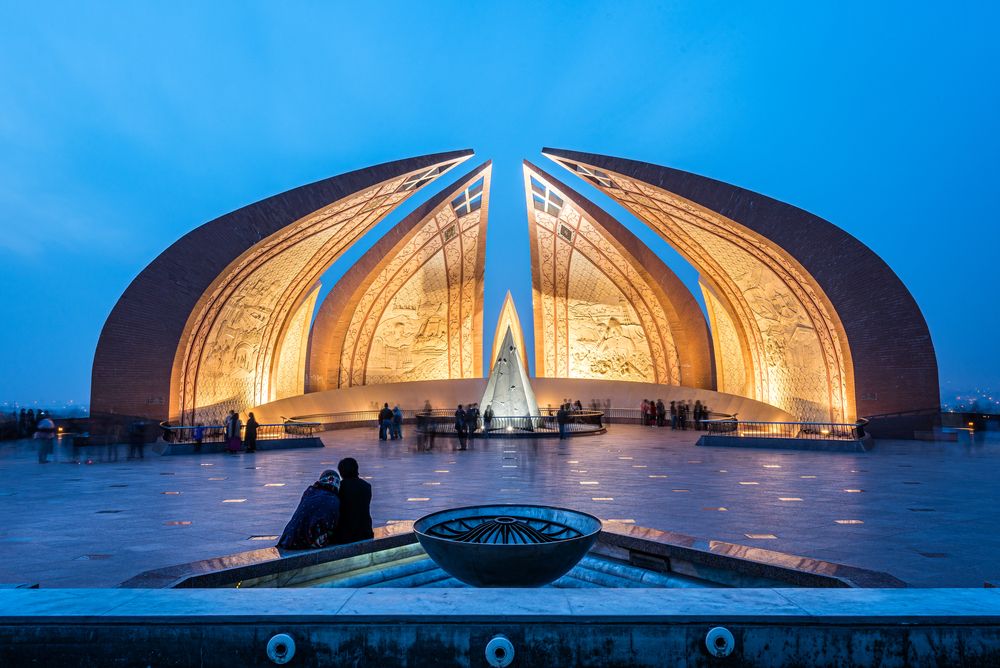Ready for investment in Pakistan

Pakistan’s presence in global news is more commonly associated with tense political conflicts, the threat of nuclear war and breakouts of contagious diseases. But beyond the theatre of politics, Pakistan’s youth and private sector have embarked on a transformation with the potential to develop the country into one of the most enterprising in Asia.
Current Prime Minister Imran Khan is attempting to refashion the country’s image as a place welcome to foreign investment. In July 2019, he addressed an audience at the Shanghai Cooperation Organisation, describing Pakistan as an “attractive investment destination”, highlighting the country’s 200 million-strong population, of whom 64 per cent are below the age of 30. Khan described the population as a “resilient and enterprising people...imbued with immense energy and creativity”.
This energy has resulted in a burgeoning startup sector, where smartphone penetration stands at 43 per cent and small to medium-sized enterprises (SMEs) account for 90 per cent of the private sector.
But the country continues to be riddled with challenges of corruption, a weak currency and poor infrastructure. The World Bank ranked Pakistan 136 out of 190 economies in its Ease of Doing Business Report, while Coursera’s Global Skills Index ranked it 57 out of 60 countries for business, technology and data science skills.
And yet despite these challenges, the country’s startups are giving Pakistan hope.
A consumer market
In 2018, Pakistan was ranked 126 on the Global Entrepreneurship Index but within a year managed to move up six ranks and is now at 120, reflecting the growth of startups and the SME sector.
SMEs contribute 40 per cent to gross domestic product (GDP), which stood at $312 billion in 2018 according to the SME Development Authority (SMEDA). They have also proved crucial to creating jobs for the youth, accounting for 80 per cent of employment opportunities in the country.
Kalsoom Lakhani and Misbah Naqvi noticed the potential of the ecosystem eight years ago, when they founded Invest2Innovate (i2i), an accelerator that has worked with 31 startups to date in Pakistan. The duo recently launched i2i Ventures, a $15 million early-stage fund and announced their first investment in tech startup Mauqa Online, which provides on-demand domestic services through a mobile application.
“We started supporting local Pakistani startups and investors because we saw the existing gap in the startup ecosystem. We wanted to offer an option for businesses to grow through our accelerator programme and that is how i2i came into being,” says Lakhani. “Me and Misbah are both Pakistani. So, the purpose was to create something in my home country and fill in the gap.”
Pakistan is the world’s 26th biggest consumer market and its startup sector reflects this appetite. E-commerce, food delivery and ride-hailing services are common in the sector and several have been attracting international attention. Online retailer, Daraz was acquired last year by China’s Alibaba in a deal thought to be worth $200 million, while Dubai-based Middle East Venture Partners (MEVP) recently invested $2 million in motorbike ride-hailing service Bykea.
“As the 5th largest [nuclear power] in the world, with a young population, a rising consumer class and increasing smartphone penetration, Pakistan presents tremendous investment opportunities,” says Lakhani.
Tackling the challenges
The ecosystem has played witness to a rise in the number of investors, incubators and accelerators, but wider support is lacking. Overall access to capital is difficult, seed-stage financing is lacking and the taxation environment hinders investors and thus startup growth.
According to US-based consultancy McKinsey & Co, there is only $0.06 per capita of VC money in Pakistan per year, while Bangladesh has $0.07 per capita and Nigeria has $0.18 per capita.
“The issue is two-fold: regulations make it cumbersome to set up our fund inside Pakistan; regulations make it hard to get money out of the country - so as much as there is liquidity in the Pakistan market, it is not something we, or many other VC funds who have also had to set up outside, can take advantage of,” says Lakhani. “This makes fundraising more difficult and means we must compete with our colleagues in the space for a smaller slice of the pie. This is not conducive overall for the future growth of the venture capital space in Pakistan, nor is it conducive for building a collaborative ecosystem of investors.”
Half of all Pakistanis do not have access to formal financial services according to the World Bank and of the 3 million SMEs in the country, banks have lent to fewer than 200,000 of them.
“There are not enough resources available for a startup to succeed. It was a lot easier two years ago because there was more hype about entrepreneurship back then compared to now,” says Nabeel Siddiqui, founder of Modulus Tech, a hardware startup launched in 2017.
But the hype could return after the government announced the Kamyab Jawan Programme this August, comprising six initiatives including startup loans, internship programmes and technical skills training. The government will provide Rs100 billion ($637 million) worth of loans over the next five years to empower the youth in these initiatives and loans of up to Rs5 million will be provided to those who start their own business.
“Some of the best innovations come out of hard times. Whenever there’s stagnancy, I see opportunities. A lot of people don’t want to invest right now (in Pakistan) but then, there are people who want to with the likes of Airlift, Gobi, Eat Mubarak as there’s a huge demand for food delivery services in the country,” says Lakhani. “So, it’s not completely a lost case. In fact, I see challenging times as a means for growth and that is when many startups and businesses push their limits and grow.”


